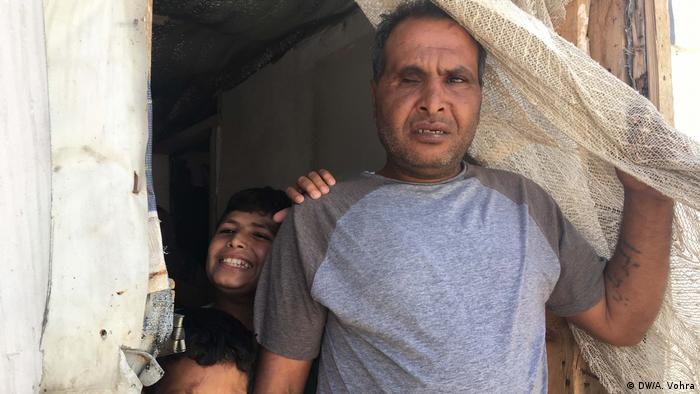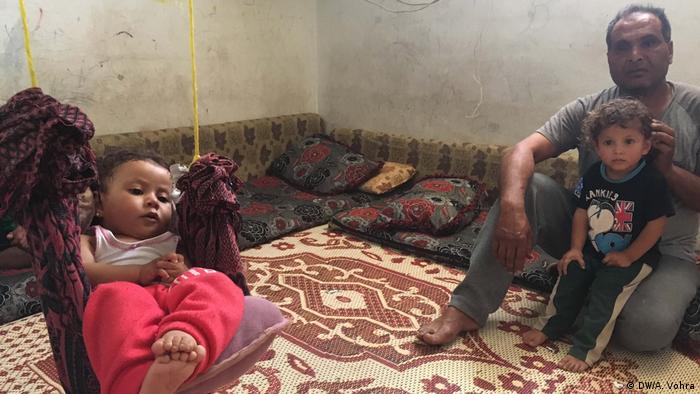 Mizyed was one of the lucky ones. He and his family are now adapting to life in a refugee camp in Lebanon
Mizyed was one of the lucky ones. He and his family are now adapting to life in a refugee camp in LebanonNumber 72 knew help wasn't coming. He was just another number among thousands of detainees. Repression and corruption was a way of life, and the people of Homs, like Mizyed, had to bow to the regime's supremacy. A wave of protests calling for reforms had engulfed the Arab world in 2010 and the Syrians, too, had stood up and challenged their regime, Mizyed among them.
The protests attracted the wrath of the regime. Right at the top of Assad's coterie was and remains Jamil Hassan, the chief of the air force intelligence, which ran the most notorious detention centers where dissidents were "interrogated." As if the degrading treatment of thousands of inmates wasn't enough, in an interview in 2016, General Hassan said he would have liked to have quelled the opposition through even harsher means.
Had Bashar emulated his father Hafez' severity in dealing with the uprising, the general said, the war would have ended much earlier, a reference to Hafez' crackdown on the Muslim Brotherhood-instigated rebellion in the early 1980s.
Mizyed didn't remember '82. However, he became aware of Assad junior's ruthlessness when images of maimed teenagers from a neighboring province, Daraa, appeared on television screens. They were tortured for drawing anti-regime graffiti.
He supported the locals who armed themselves to protect the town of Baba Amr from Assad's excesses. However, he asserts, he never picked up a weapon and only helped the Free Syrian Army in their civil and humanitarian campaigns.
Then a piece of shrapnel pierced his eye, partially blinding him — a result of Assad's bombing campaign on Baba Amr. He was on his way to a hospital when two Syrian soldiers stopped his vehicle. "Don't you know it is unsafe to drive these days?" said one of them. It was their type of joke.
A perpetual nightmareThey escorted him to Saydnaya prison, one of General Hassan's detention centers, the first stop on what would be a long and excruciating ordeal. Recounting the tortures ordered by General Hassan, he said: "They electrocuted me three times a day. Once my toenail popped out with the impact."
Then, one day in February 2013, the brigadier at the detention center called for him. They let him have a shower and gave him new clothes.
His first feeling was relief. Relief from the smell of which he reeked, from the daily ordeals. That day, he was someone, even if they were going to kill him.
He couldn't comprehend why they let him go, but all of it came to an end, abruptly. Later he found out that he might have been released in a prisoner swap mediated through the elders of Homs. The rebels had released two Russians weeks before, in exchange for rebels and their supporters who were still alive in captivity.
 Mizyed doubts that that the Syrian regime's perpetrators will ever pay for their crimes
Mizyed doubts that that the Syrian regime's perpetrators will ever pay for their crimesHe walked to Lebanon with his family among hordes of others seeking safety and now lives in a refugee camp in the Bekaa Valley.
Now, five years later, the wounds have healed but the scars are still visible, evidence of the crimes committed against his body.
He was, he says, robbed with impunity of any semblance of dignity. There is no apparent route to trial for his perpetrators. Russia and China have vetoed a UN move to refer the Syrian regime to the International Criminal Court in The Hague.




